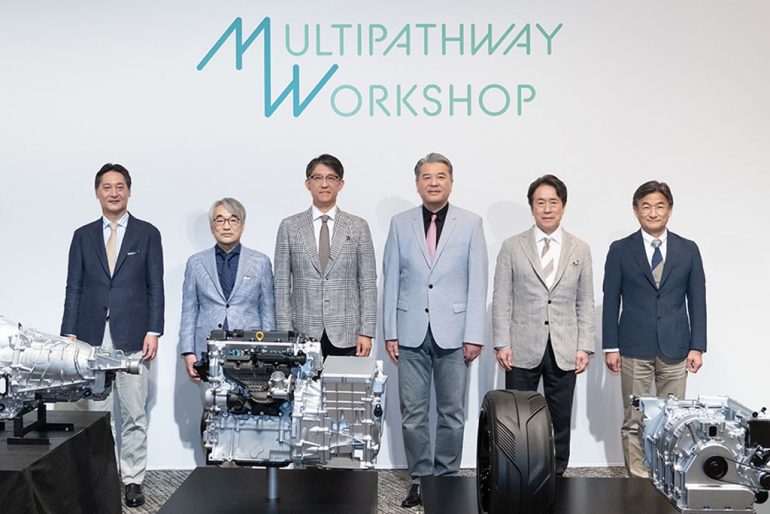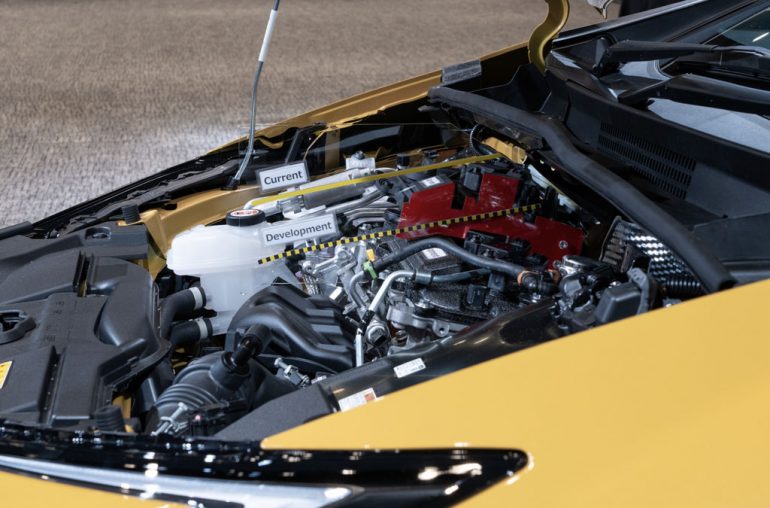
Toyota Motor Corporation recently showcased innovative next-generation engines designed to be adaptable for various fuel types, including hybrids and biofuel-powered vehicles. This move aligns with Toyota’s commitment to meeting stringent emissions standards while expanding its product range beyond electric vehicles (EVs).
During a joint media event with Subaru and Mazda, Toyota displayed its new 1.5-liter and 2.0-liter engines. These engines are significantly smaller and more compact than their predecessors, featuring reduced volume and height. The collaboration aims to enhance integration with electric drive components such as motors and batteries, promoting a comprehensive approach to decarbonizing internal combustion engines. This initiative supports the use of alternative fuels like e-fuels and biofuels, which can help lower carbon emissions.
Also, don’t forget that you can get discounted new car pricing with a free quote through qualified local dealer partners.

Toyota’s new 1.5-liter engine promises a 10% reduction in both volume and weight compared to the current 1.5-liter engines used in models like the Yaris compact car. Similarly, the new 2.0-liter turbo engine offers comparable improvements over existing 2.4-liter turbo engines found in larger vehicles, such as three-row SUVs. The compact design of these engines not only aids in efficiency but also allows for lower vehicle hoods, potentially revolutionizing future vehicle design.
Despite being perceived as slow to adopt EV technology, Toyota has benefited from the growing popularity of petrol-electric hybrids, particularly as the growth of EVs has decelerated. This strategic refresh of traditional engine technology is similar to moves by other manufacturers like Mercedes-Benz. Toyota’s focus on improving hybrid technology comes as the company navigates tougher emissions standards in markets like the European Union, which is working towards implementing “Euro 7” emissions rules by 2030 and banning new CO2-emitting car sales by 2035.

Toyota continues to advocate for a “multi-pathway” strategy to achieve carbon neutrality, offering a diverse range of powertrains. In the first quarter of this year, nearly 40% of Toyota’s 2.4 million vehicle sales were petrol-electric hybrids. In contrast, plug-in hybrids, fuel-cell vehicles, and all-electric vehicles combined accounted for just 2.9% of sales. Chairman Akio Toyoda has projected that EVs will only capture up to 30% of the global auto market, with the remaining share filled by hybrids, hydrogen fuel-cell, and traditional fuel-burning vehicles.

While the specific launch dates for models equipped with these new engines have not been disclosed, Toyota’s ongoing efforts signify a robust approach to adapting to future automotive and environmental challenges. The development of compact, versatile engines highlights the company’s dedication to innovation and sustainability in an evolving market landscape.